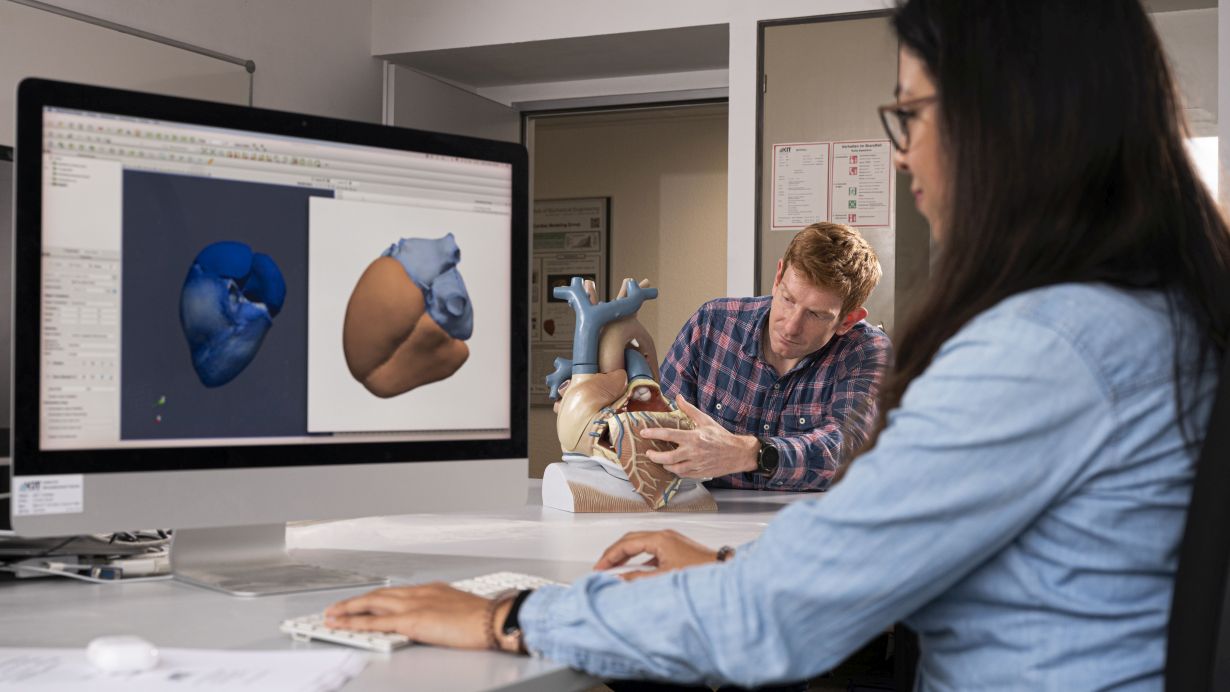Research findings are increasingly associated with digitalization processes. This applies to both research methods and their communication in science and society. In four research clusters, FIZ Karlsruhe – Leibniz Institute for Information Infrastructure and Karlsruhe Institute of Technology (KIT) will now study the effects of increasing digitalization of scientific work across various disciplines and develop concrete solutions. The Senate of the Leibniz Association considers DiTraRe a “project of high relevance and transdisciplinary innovative power.” On March 22, 2023, it agreed to fund the ScienceCampus for initially four years.
Leibniz ScienceCampi are aimed at better connecting university with non-university research. They promote cooperation between Leibniz institutions and universities or other non-university institutes. The goal is to create networks to drive the respective research field and to strengthen the scientific environment.
“In science – no matter whether in climate and energy research or in natural and materials sciences – use of data-based analyses and large data volumes has long become a matter of routine. To further accelerate digital transformation, we need cooperation across disciplines and institutions, which is what we have already done successfully with FIZ Karlsruhe. This cooperation will now be continued in the ScienceCampus,” says Professor Holger Hanselka, President of KIT.
Sabine Brünger-Weilandt, President and CEO of FIZ Karlsruhe, is happy to open a new chapter of cooperation with KIT: “The ScienceCampus will enable us to contribute our expertise in information infrastructure and digital transformation and to break new ground in research together with our partner KIT.”
Transparent and Reproducible Cognitive Processes Create Trust
Digital transformation in research influences all disciplines. Change of scientific methods by e.g. data-based analysis leads to changed methodologies in individual disciplines. It is important to make both scientists and data users aware of this change and to study the effects of transformation on the perception of science in society. Transparent and reproducible cognitive processes are crucial to the science system and to the society’s trust in research. The interdisciplinary focus of KIT and FIZ Karlsruhe is indispensable for a holistic investigation of this topic. Researchers of KIT, for instance, want to enhance the researchers’ awareness of security in the collection, evaluation, and storage of sensitive information and to inform them about feasible security solutions. Their research also covers the transparency and reproducibility of communicating scientific findings to society. In particular, technology assessment methods are applied.
Research Clusters Focus on Concrete Scientific Applications
The DiTraRe program is organized in four research clusters, each of which covers a concrete scientific application. The research cluster “Protected Data Spaces” will focus on “Sensible Data in Sports Science.” Other research clusters will concentrate on intelligent data acquisition (application: Smart labs in chemistry), AI-based knowledge spaces (application: AI in biomedical engineering), and publication cultures (application: Publication of big data volumes). (bab)
About FIZ Karlsruhe
FIZ Karlsruhe – Leibniz Institute for Information Infrastructure is a limited liability company with recognized non-profit status and, as one of the major information infrastructure institutions in Germany, has the public mandate to provide science and research with scientific information and to develop corresponding products and services. To this end, FIZ Karlsruhe indexes very large volumes of data from a wide variety of sources, develops and operates innovative information services and e-research solutions, and conducts research projects of its own. FIZ Karlsruhe is one of more than 95 members of the Leibniz Association. Leibniz Institutes conduct research and supply scientific infrastructure.
Contacts for This Press Release
Dr. Babett Bolle, Communication, FIZ Karlsruhe, phone: +49 7247 808513, email: babett bolle ∂does-not-exist.fiz-karlsruhe de
In close partnership with society, KIT develops solutions for urgent challenges – from climate change, energy transition and sustainable use of natural resources to artificial intelligence, sovereignty and an aging population. As The University in the Helmholtz Association, KIT unites scientific excellence from insight to application-driven research under one roof – and is thus in a unique position to drive this transformation. As a University of Excellence, KIT offers its more than 10,000 employees and 22,800 students outstanding opportunities to shape a sustainable and resilient future. KIT – Science for Impact.

